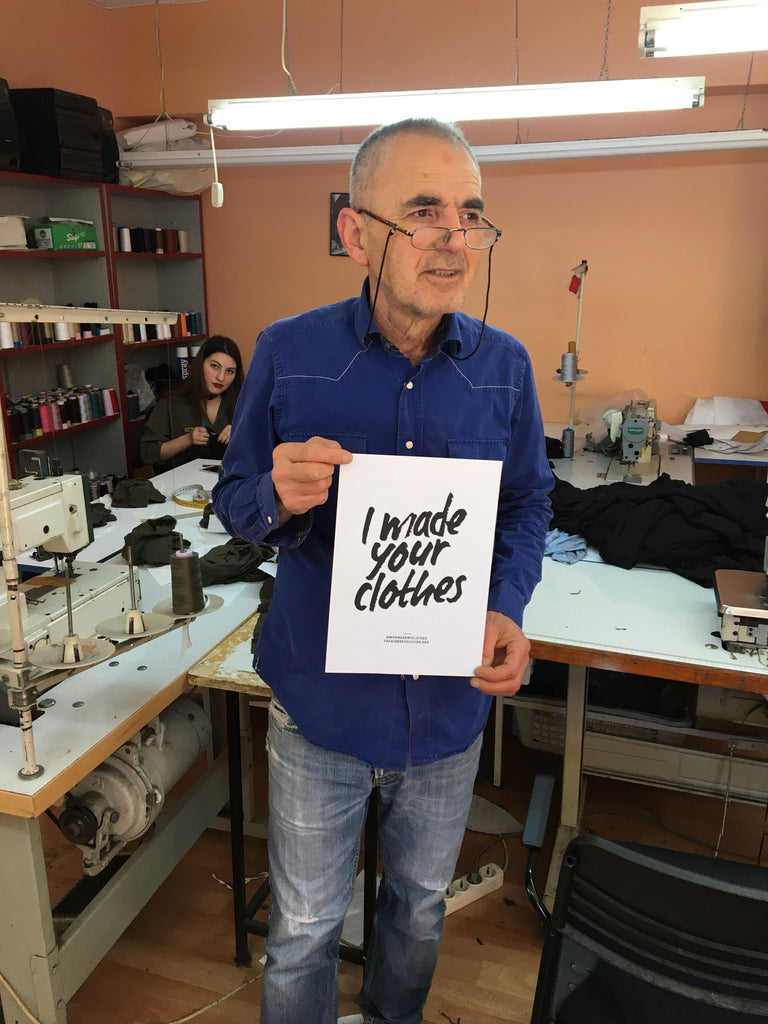To Support Slow Fashion, We Need To Understand How It Became So Fast

Written By: Lisa Bladh
The collapse of the Rana Plaza building in Bangladesh seven years ago made us all painfully aware of the social and environmental backsides of fast fashion. Since then, the idea of 'slow/ethical fashion' paired with transparency has exploded and entered the field of vision of even industry outsiders!
Slow fashion seems to be a brand new phenomenon, but in reality it goes way back. So, today we will guide you through a *very* brief history of fashion and get to the roots of where and when slow fashion started.
How did fashion become so fast?
To understand how fashion slowed down, we must first recognise how it sped up.
For most of history, ‘fashion’ and trends were confined to the upper classes, the ones with the privilege of choosing what to wear based on style rather than utility (As you can imagine the height of a waistline, or cut of a skirt wasn't exactly relevant to the everyday farmer in the 1500s). For the upper classes, though, key to looking good was to keep up with the freshest trends from whatever country was fashionable at the time (we see you, France).
Then came the industrial revolution, which made clothes (along with more or less everything else) easier to mass produce and thus available to the masses. Clothing prices continued drop in the 20th century with the help of big companies taking advantage of the technological strides and the emergence of marketing.
This ever-accelerating industry came to a peak in the 90s when fast fashion as we know it today, was birthed from its two parents: globalization and
the digital revolution.
This meant that large fashion companies globalized and in-turn began exploiting underpaid workers in developing countries, and produce the super cheap 'throw-away' fashion so popular today .


When Slow Fashion Took Hold!
Let us rewind to the 1960s, when people started to rise up against the exploitation of the planet and workers in the rebellious protests of the hippie movement. Maybe this was the seed that eventually grew, no, grooved to beat of The Monkees, into PETA’s oh-so-controversial anti-fur campaign ‘I’d rather go naked’ in the late 80s and early 90s.
This campaign surfed the waves of the supermodel era to shine light on the cruelty of fur, and did it so well that it (very uniquely) was cancelled recently due to its success.

Then, six years before the Rana Plaza tragedy, Kate Fletcher coined the term ‘slow fashion’ in an article for The Ecologist where she compared the fast fashion industry to the fast food industry (two surprisingly similar industries to us), which recently had birthed the counter movement ‘slow food.’
The movement then gained ground quickly after the catastrophe of Rana Plaza was all over the news in 2013, and was helped along by the successful documentary The True Cost which premiered two years down the line.
Slow fashion is now seen as an essential part of the game plan to a greener, more long-term way of producing, and perhaps that wouldn’t have been possible without the spark that the flower power movement provided way back in the 60s.
We are still evolving and growing, so only time will tell what we can achieve if we work together to create a fairer and more sustainable world.

References
ILO: The Rana Plaza Accident and its aftermath 04-25-2020
PETA: Is PETA Ending 'I'd Rather Go Naked Than Wear Fur'? 04-25-2020
Solene Rauturier: A Brief History of Ethical and Sustainable Fashion 04-23-2020
The Ecologist: Slow Fashion 04-25-2020
Wikipedia: Slow fashion 04-23-2020Photo Credits
ElizabethanCostume.org
Fashionhistory - LoveToKnow
PETA



